Myanmar is a country in Southeast Asia bordered by India, China, Laos, and Thailand. The nation had been known as Mranma Prañ since the 1200s, until the name was changed to the Union of Burma under the British colonizers in 1885 and was changed again in 1989 to the Union of Myanmar after a violent coup. Humans have settled in Myanmar for at least 11,000 years. For the past few thousand years, the region has been an important center of trade between India and China. The nation spent centuries in conflict with neighbors like Thailand while also fighting off the British, French, and Portuguese colonial empires. Myanmar has seen a long history of internal fighting involving the many different tribal and ethnic identities within its borders, such as the Burmans, Karen, Karenni, Shan, and Mon. The Rohingya, a Muslim group native to Asia, were brought in for labor under the British and have faced brutal oppression under various Burmese leaders that continues to the present day. Through the 20th and 21st centuries, Burmese immigrants have helped make Colorado a more vibrant state.
Perhaps the earliest and strangest connection between Burma and Colorado involved an Austrian student at Colorado College named Inge Eberhard and a Burmese student at Colorado School of Mines named Sao Kya Seng. The two met at a party for international students, fell in love, and were married in 1953. They then moved to Hsipaw State in then Burma, where Sao revealed that he was the prince of the province. They had two daughters before the violent coup of 1962, when the prince was imprisoned and killed. After spending two years under house arrest herself, Inge (known there as Sao Nang Thu Sandi) left with her children and eventually settled in Boulder, Colorado. Inge remarried, working for decades teaching English and German at Fairview High School and at Centennial Jr. High before retiring and writing her autobiography. With people like Inge raising awareness, in 1996, the town of Boulder also became the eighth in the country to boycott Burmese products in protest of the brutality of the ruling regime.
The State Law and Order Restoration Council seized power in 1988 and sparked a mass exodus of Burmese people out of the country and into countries like the United States. Aye Aye Mon was 15 in 1988 and remembers the pro-democracy protests and the military murdering thousands of people, including her own grandparents. She and others fled into the deep forests near the border with Thailand. It was here, in hiding, that she met pro-democracy activist Yu Htwe, married him, and started a family. It was not until the birth of their third child, Hein, that they made it across the border into Thailand. In 1997, the family finally arrived in Denver and started new lives with the help of Ecumenical Refugee Service. They continue to speak out against the oppression facing those back in Myanmar.
For many, the process of coming to the United States would take years. Thaw Dah Win (known as Tiple) was also 15 during the 1988 coup. He and other students had to flee along with the principal of their school after protesting for clean drinking water. After spending months in the jungle, eating what they could find and seeing some classmates die from malaria, he and his classmates made their way to refugee camps in Thailand. It wouldn't be until 2007 that Tiple and his family would arrive in Denver with the help of Lutheran Family Services. He soon went to work studying with other refugees at the Emily Griffith Opportunity School to learn skills and improve his English. Even in 2007, the Rocky Mountain News reported that only around 200 Burmese refugees had made it to Denver while an estimated 140,000 remained in refugee camps along the Thai-Myanmar border. As Tiple told the Denver Post,
“The reason I came to America is for my children’s future.” Rocky Mountain News October 15, 2007
Since many Burmese came from rural farming communities, it is natural that they don't all settle in big cities. Like many other first-generation immigrants, 500 Burmese had settled in Greeley by 2010, with many working in meat-packing while learning English and letting their children receive an American education. Christine Gylling had come from Myanmar in 2000, and in 2010 was a pre-med student at the University of Northern Colorado. While pursuing her studies, she worked alongside Maria Sanchez to improve the English of people from multiple different Burmese tribes with distinct languages or dialects. She also had to help them with basic parts of life here that many of us take for granted. In Gylling’s words,
“This is definitely a shock to them. Most have nothing. Most sleep on the floor. And for many, the most high-tech thing they own is a book and a pencil.” Denver Post July 20, 2010
HtooLer Moo was just nine years old when his family fled their small Karen village in Myanmar for a refugee camp in Thailand. The family lived in a single room for seven years in Thailand, but HtooLer was able to take classes in English and prepare for their eventual move to Denver. They soon moved the family to Delta to do agricultural work with other Burmese immigrants. HtooLer started high school and worked hard to improve his English. Before long, he had joined the soccer team and was recognized as an honor student. In 2015, HtooLer was accepted into Adams State University, which would be paid for by a special federal program that aids the children of migrant families. He was the first of his family to attend college.
In 2017, the United Nations referred to the genocide of the Rohinga in Myanmar as “a textbook example of ethnic cleansing.” That year, half a million Rohingya fled the country within two months as the government’s campaign against them intensified. Many who came to Colorado ended up in Aurora and set up a small community mosque on the bottom floor of an apartment complex. One member of this community is Htein Lin, who is an organizer with the Burmese Rohingya Association. He has organized protests at the Colorado Capitol to bring attention to the genocide and push the U.S. government and other governments to speak out against it. Htein also encourages those who want to help to join Lutheran Family Services to assist those settling into their new country.
As with most immigrant groups, their first cultural contribution to the greater community is often their food. In 2019, Siri Tan and his brother Martin opened what is considered the first Burmese restaurant in Colorado. The eatery, Urban Burma, sits within the Mango House food hall in Aurora. In 2022, Ma Kaing and her family opened the Taw Win Thai and Burmese restaurant in Aurora. Sadly, Ma Kaing was tragically killed by a stray bullet soon after starting the restaurant. Her son Kyaw Oo went on to successfully fight for police reforms regarding policing in their heavily immigrant community on East Colfax. Despite their loss, the family continues to operate their restaurant on Yosemite Street.
Zin Zin Htun, an ambitious female entrepreneur, came to Colorado in 2015. Since arriving, she worked to learn all the complicated rules around operating a restaurant in the United States and went on to open Zin Zin’s Burmese Cuisine on Alameda Avenue in 2022. She continues to encourage other female entrepreneurs to pursue their dreams and open their own businesses. Like other Americans, the first generation to arrive here continues to help pave the way for those who arrive after them. In the words of Saw Peter, a Karen immigrant helping other Burmese adjust to life in Delta, Colorado,
"It’s a lot of work to be a true leader," Peter says. "For me, I don’t want to be a leader. I want to be a helper, a helper for [my people]." KVNF Radio October 23, 2015
For more information:
Clipping file on Burmese in Colorado (Available upon request)
Burmese Rohinga Community of Colorado

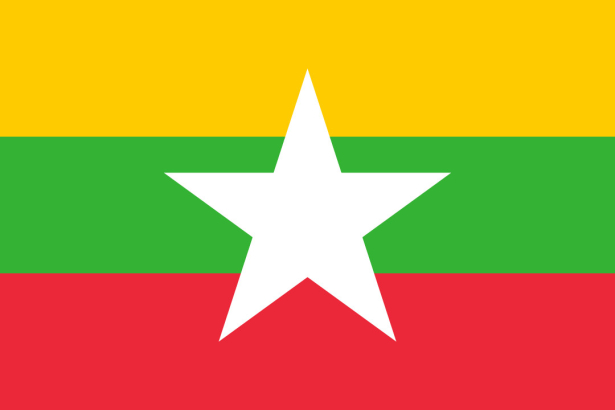
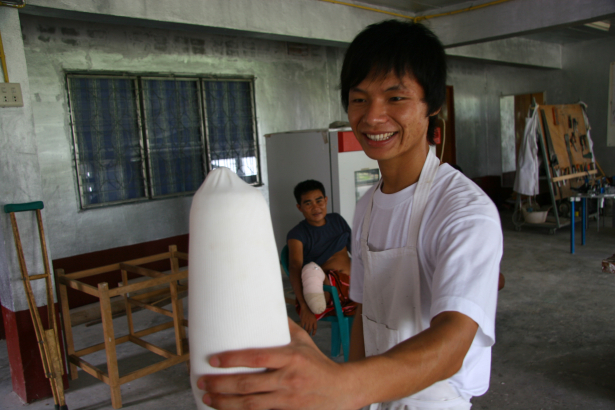
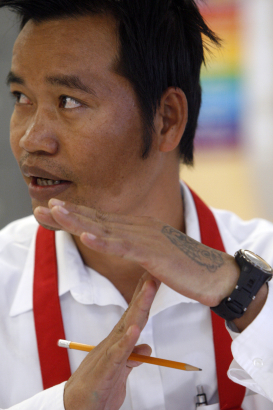
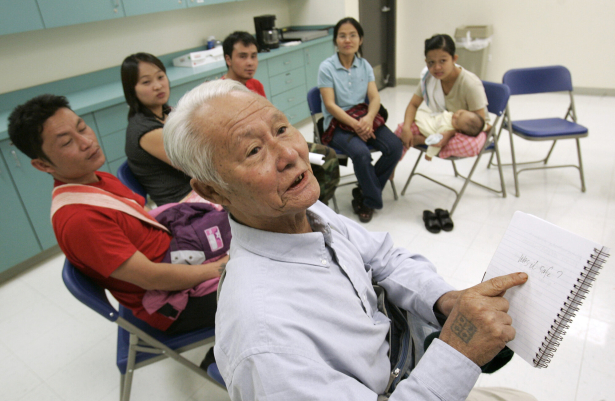
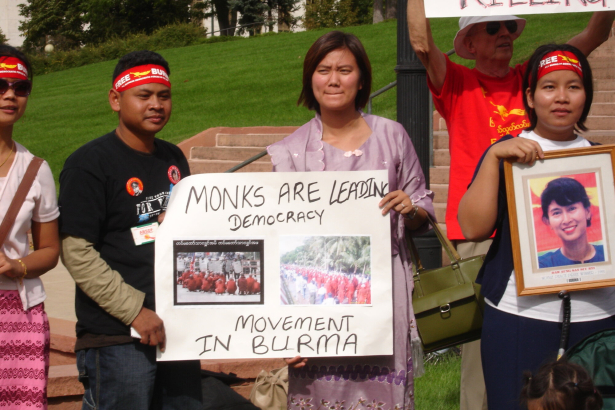
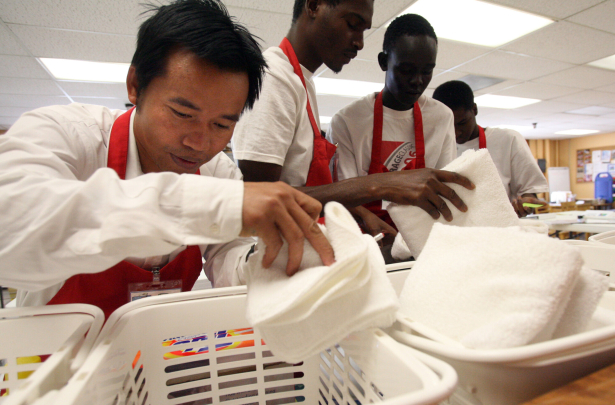
Add new comment